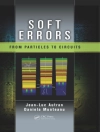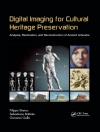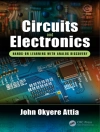Rapid industrialization and urbanization associated with the environment changes calls for reduced pollution and thereby least use of fossil fuels. Biofuel cells are bioenergy resources and biocompatible alternatives to conventional fuel cells. Biofuel cells are one of the new sustainable renewable energy sources that are based on the direct conversion of chemical matters to electricity with the aid of microorganisms or enzymes as biocatalysts. The gradual depletion of fossil fuels, increasing energy needs, and the pressing problem of environmental pollution have stimulated a wide range of research and development efforts for renewable and environmentally friendly energy. Energy generation from biomass resources by employing biofuel cells is crucial for sustainable development. Biofuel cells have attracted considerable attention as micro- or even nano-power sources for implantable biomedical devices, such as cardiac pacemakers, implantable self-powered sensors, and biosensors for monitoring physiological parameters.
This book covers the most recent developments and offers a detailed overview of fundamentals, principles, mechanisms, properties, optimizing parameters, analytical characterization tools, various types of biofuel cells, all-category of materials, catalysts, engineering architectures, implantable biofuel cells, applications and novel innovations and challenges in this sector. This book is a reference guide for anyone working in the areas of energy and the environment.
عن المؤلف
Inamuddin, Ph D, is an assistant professor at the Department of Applied Chemistry, Zakir Husain College of Engineering and Technology, Faculty of Engineering and Technology, Aligarh Muslim University, Aligarh, India. He has extensive research experience in analytical chemistry, materials chemistry, electrochemistry, renewable energy, and environmental science. He has worked on different research projects funded by various government agencies and universities and is the recipient of multiple awards, including the Fast Track Young Scientist Award and the Young Researcher of the Year Award for 2020, from Aligarh Muslim University. He has published almost 200 research articles in various international scientific journals, 18 book chapters, and 120 edited books with multiple well-known publishers.
Mohd Imran Ahamed, Ph D, is a research associate in the Department of Chemistry, Aligarh Muslim University, Aligarh, India. He has published several research and review articles in various international scientific journals and has co-edited multiple books. His research work includes ion-exchange chromatography, wastewater treatment, and analysis, bending actuator and electrospinning.
Rajender Boddula, Ph D, is currently working for the Chinese Academy of Sciences President’s International Fellowship Initiative (CAS-PIFI) at the National Center for Nanoscience and Technology (NCNST, Beijing). His academic honors include multiple fellowships and scholarships, and he has published many scientific articles in international peer-reviewed journals. He is also serving as an editorial board member and a referee for several reputed international peer-reviewed journals. He has published edited books with numerous publishers and has authored over 20 book chapters.
Mashallah Rezakazemi, Ph D, received his doctorate from the University of Tehran (UT) in 2015. In his first appointment, he served as associate professor in the Faculty of Chemical and Materials Engineering at Shahrood University of Technology. He has co-authored in more than 140 highly cited journal publications, conference articles and book chapters. He has received numerous major awards and grants from various funding agencies in recognition of his research. Notable among these are Khwarizmi Youth Award from the Iranian Research Organization for Science and Technology (IROST), and the Outstanding Young Researcher Award in Chemical Engineering from the Academy of Sciences of Iran. He was named a top 1% most Highly Cited Researcher by Web of Science (ESI).












